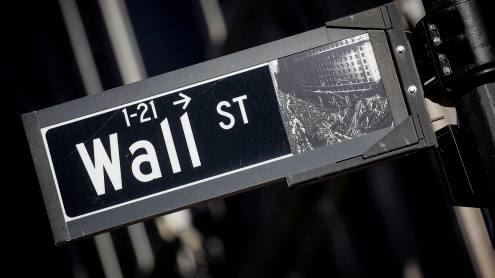Large Brazilian banks, generally speaking, are pretty parochial. Years of hyper and high inflation at home offered mouth-watering profits from government bond investments. More recently, an enormous growth in credit has helped to offset a reduced yield on bonds. But as Brazilian banks have grown rapidly and become more sophisticated and client focused, foreign expansion is looking more appealing. The top Brazilian banks are now among the largest in the world. According to The Banker's Top 1000 World Banks, Itaú Unibanco is ranked 33rd in the world and Bradesco comes in at 45th.
Both the Brazilian economy and its banks are emerging from the crisis looking remarkably healthy. Gross domestic product growth is estimated at more than 5% this year by economists and the real remains strong, giving local banks a good purchasing currency. The stronger real also makes Brazilian banks more competitive in hiring global talent, says Alvaro Taiar, lead partner of the Latin American financial services practice at PricewaterhouseCoopers. Perceptions of opportunities in working for Brazilian banks have changed, he says.
The 2009 results show scratches rather than the mauling experienced by many international banks. Bank shares have recovered, with Itaú Unibanco gaining some 34% in value in the 12 months to February 10, despite more recent weakness. "The image of Brazilian banks today is efficient, effective and capable," says Celina Vansetti-Hutchins, senior analyst at Moody's in New York.
On the way up
Brazil is becoming a bigger cog in the international economy. "In the next 20 years or so, Brazil is likely to be the world's fifth largest economy. Banks in other large economies are already global. Logically, Brazil will follow suit," says Graham Nye, partner at PricewaterhouseCoopers in São Paulo.
Latin America will be a particular area of growth and within five to 10 years, Brazilian banks will play a much bigger role in the region, adds Plinio Chapchap. "Brazil's participation in Latin America is going to keep on expanding."
Prompted by growth, Brazilian companies are already flexing their muscles. Some are truly global, including drinks company Ambev, oil giant Petrobras and miner Vale. Others are emerging fast, such as JBS Friboi, one of the world's largest meatpackers, and steelmaker Gerdau, while others have regional and selected global presences, such as construction companies Odebrecht and Camargo Corrêa.
Brazilian banks do not want to lose the business of such blue-chip companies to global players and are extending out global services. There has been a transfer of the global business of Brazilian companies from global to home-grown banks in areas such as export and external funding, says Milena Zaniboni, managing director of corporate and government ratings at Standard & Poor's in São Paulo.
Then there is the growing Brazilian diaspora. There may be as many as 1.1 million Brazilian people living in the US and a further 1.5 million spread across Japan, neighbouring Paraguay, Portugal and the UK. Ties to Brazil and remittances are likely to make them gravitate to Brazilian banks in their new markets and Banco do Brasil has presences in Japan and the US.
Another motivation for overseas expansion is diversification. The high profits raked in by Brazil's banks may have peaked as interest rates fall, foreign competition grows and government intervention intensifies. "What we have seen in recent years in profits is not sustainable. Brazil is now investment grade and over time will generate slower profits. In the long term, Brazilian banks need to diversify earnings," says Ms Vansetti-Hutchins. "It is the end of the easy money," adds another analyst.
All of these drivers are persuading banks that it is key, at least, to have a foreign expansion strategy. And yet they are baulking at big foreign expansion due to the array of opportunities that the home market still offers.
Although spreads on lending may be heading down, they are still remarkably attractive. According to data from Brazil's central bank, the average rate charged by all banks to retail and commercial clients was 27.79% last December. Short-term borrowing through special cheques spiked to as much as 159.08% and the lowest available area was vendor financing to companies, at 16.55%. Moreover, growth is fast, with Bradesco predicting lending growth of some 25% this year.
The situation is so good that banks are not particularly interested in competing with each other at home, says Ms Vansetti-Hutchins. Many believe they have enough of a client base that is not fully exploited.
"The main strategy of Brazilian banks is to focus on the domestic market. They need to focus on raising additional capital to meet demand and seeing off competition at home," adds Ms Zaniboni. Overseas expansion is expensive, risky and unproven, she says.
If profits outside Brazil cannot compare to the money they make at home, Brazilian banks caution is reinforced due to the volatile environment in which they have operated for years and fears about the health of the global banking system. That has caused them to procrastinate. "Brazilian banks are being very cautious not to buy banks saddled with hidden problems and bad loans derived from the crisis," says Mr Taiar.
International strategies
The discussion over what is the right international strategy for banks has become heated and polemical, says Gregory Gobetti, partner in the financial services area of Ernst & Young in São Paulo. It is going to be an important challenge for them to define plans this year, he adds. "There has been lots of discussion, but not much movement to date. Brazilian banks are very small abroad compared to their total assets."
Brazilian bank executives say that to expand abroad, they need to have a clear and developed strategy, good opportunities and be able to sustain profits at current levels, adds Mr Gobetti. That is the difficulty; Brazilian banks are among the world's most profitable due to those high spreads, with return on equity between 15% and 20%. "These banks are thinking: 'If we go international, would we be able to maintain that profitability?' This is one of the main obstacles," he says.
Brazilian banks also need to improve platforms in areas such as risk mitigation and management. "Banks such as Santander and Citigroup have operations, policies, procedures and tools for overseas management. Brazilian banks still need to build this infrastructure," says Mr Gobetti. Brazilian banks don't have a track record in areas such as risk management and there are concerns because of this, but they did weather the financial storm and their image has been strengthened by their recent performance, adds Mr Nye.
The delicate balance between grabbing overseas opportunities or staying at home means that Brazilian banks will not make splashy acquisitions, but will cherry-pick from a select menu of opportunities.
The greatest focus will be in Latin America, where culture and language are similar and Brazilian banks remain under-represented. Further afield, banks will look to follow Brazilian companies, offering commercial and only very limited retail banking.
A final niche area is capital markets. Last year, the Bovespa index was up 147% in US dollar terms. "The world is interested in Brazilian capital markets. This is a good opportunity for Brazilian banks to get onto syndications and broaden their experience of capital markets," says Mr Chapchap.
Public sector banks
State-owned banks are in high spirits after two years of stepping up lending at home, which has seen Banco do Brasil recapture its role as Brazil's biggest bank. It now also seems intent on stealing a march on the private banks overseas. In an electoral year, state banks always have big plans, says Ms Vansetti-Hutchins. Brazilian elections are slated for October.
Banco do Brasil's international policy can be summed up as 'following the flag'. The bank is focused on Latin opportunities and selective global ones, particularly in the US, where it became a deposit bank of choice during the crisis as Brazilian citizens and companies fled from global banks.
One priority market is Argentina, where the bank is interested in buying Banco de Patagonia, the fourth largest bank in the country. Not all analysts are convinced. "I don't see the sense of that: why do you need to be in Argentina in a big way?" asks Ms Vansetti-Hutchins, adding that Patagonia is not the most attractive franchise and there will be restrictions on the level of ownership that could leave the Brazilians with just 49%.
Another analyst questions whether the bank is more interested in keeping up with its competitors than sensible strategies. Itaú has a big presence in Argentina. "To be very cynical, the thinking at Banco do Brasil may well be that Itaú has operations in Argentina and that 'we need to go one better'," says one analyst, who prefers to remain anonymous.
Banco do Brasil also applied for a banking licence for the US in late 2008, although it is now reported to be thinking of buying some 20 branches of Citizens Bank, owned by the Royal Bank of Scotland, which would bring a licence. It has also recently set up a remittance arm, BB Money Transfers, to exploit the growing number of Brazilians sending money home.
Allan Toledo, vice-president for international operations at Banco do Brasil, has told journalists that the bank is planning to invest $40m in the expansion of its operations in the US, with the opening of between five and 10 agencies to serve Brazilian people. The Brazilian community and business presence is strong in the north-eastern states of New Jersey, New York, Connecticut and Massachusetts as well as in Florida, which are seen as priority markets. The strategy will be a mixture of retail, geared towards Brazilians and commercial banking, including areas such as commercial banking.
Yet, there are two large questions surrounding any move by Banco do Brasil abroad. First, as a state-owned bank, its every move is scrutinised. The government has preferred to emphasise the bank's role in bringing down spreads domestically and extending banking services to underserved regions and regards international expansion ambiguously. The battle is raging, with politicians asking why Brazilian taxpayers should invest in Argentina when spreads are so high, bankarisation so low and service remains poor in Brazil, says Mr Gobetti.
Second, the bank's reserves are depleted and it has said that it would like to raise as much as 10bn reais ($5.36bn) through a rights' issue to bring Basel II capital levels up from 13% to some 15%. "The question is, 'does it need to expand abroad now?' If it had huge capital ratios, it would make sense, but it doesn't. These plans seem extravagant," says Ms Vansetti-Hutchins. It remains to be seen whether the bank is going to emphasise value for money and sensible pragmatic planning or a dash for growth for prestige.

Alvaro Taiar, lead partner of the Latin American financial services practice at PricewaterhouseCoopers
Private banks
Brazil's two large private banks are pursuing different strategies, with Itaú Unibanco already growing through the region, while Bradesco has remained the most purely Brazilian of the big banks.
Itaú Unibanco already has key operations in Latin America, having bought Banco del Buen Ayre in Argentina in 1998 and then added operations in Chile and Uruguay in 2006 when it bought BankBoston's assets. Unibanco brought the second largest bank in Paraguay, Interbanco, to the party when it merged with Itaú. At the time of the merger, the president of Unibanco, Pedro Salles, said that one of the motivations for the merger was to build an international business.
However, Itaú has not struck in the past couple of years, despite all the talk. It hired one of Brazil's best-known bankers, Pedro Malan, to fill out its international strategy and recently set up a committee of experts to contribute ideas as to how the bank should expand and spread its name overseas. For now, though, it is growing incrementally in new markets such as Peru and Colombia where it has followed Brazilian companies.
Itaú Securities has expanded in centres such as New York and Tokyo, but this appears mainly to enable it to serve Brazilian companies rather than compete head on with large global banks. Managers told local paper Valor Economico the division will expand its 68-strong New York team to more than 80 staff, invest $10m in 2010 and increase equities coverage in other Latin American countries. Mr Chapchap believes the idea will be to offer Brazilian multinationals more products and get in syndicates with US banks to distribute debt, equities and American Depositary Receipts of Brazilian companies.

Plinio Chapchap, professor of finance at Profins Business School
Cautious Bradesco
Even though Bradesco has been investigating the world of international banking, it is proving the most cautious of all the banks in extending its foreign reach. This year, the bank did buy consumer finance specialist Ibi México from Switzerland's Cofra Holding, a credit card company. The deal is very small scale, however, as Ibi has just 1 million cards outstanding, compared with Bradesco's 88 million, and the Mexican company's credit portfolio is $99m, compared with Bradesco's total lending of $131bn.
The bank has eschewed foreign expansion, with executives stating that it will grow faster in corporate banking at home this year and that it sees opportunities arising in infrastructure, especially with forthcoming World Cup and Olympics events planned in Brazil. Bradesco would have a hard time abroad as overseas business is not part of the bank's culture, says Mr Chapchap. Many of the directors do not have substantial exposure to overseas markets, he adds.
Brazilian banks are at a stage where they should be larger overseas and they know it. Their recent positive performance has fuelled plenty of talk about possible acquisitions. Yet, the myriad opportunities for immediate profits in the home market have weakened their drive for foreign expansion and they are likely to emphasise pragmatic, opportunistic and relatively slow overseas growth. Some fear that Brazilian banks have already missed the boat; after all, the bargain prices for financial institution assets witnessed in 2009 is unlikely to be repeated any time soon.












